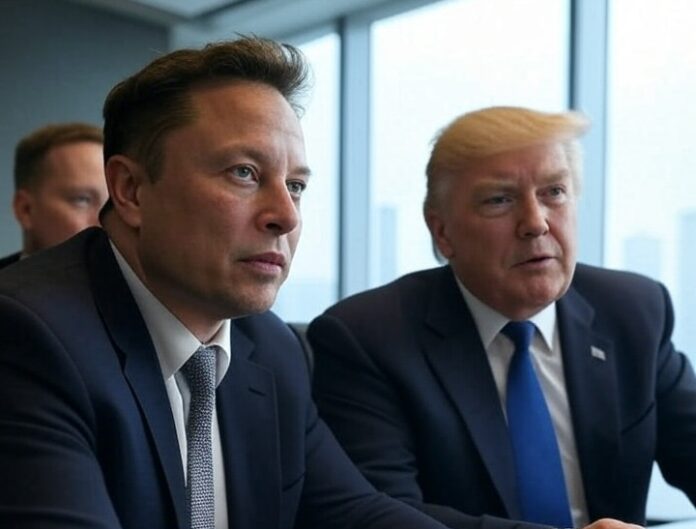Elon Musk’s involvement in Donald Trump’s administration has sparked heated debates, with many questioning whether the billionaire neglected his business empire while pouring millions into Trump’s election campaign. Let’s dive into this controversy, explore a fresh perspective, and unpack whether Musk truly sidelined his interests—or if this narrative misses the bigger picture.
Musk, the CEO of Tesla and SpaceX, reportedly spent nearly $300 million to support Trump’s 2024 presidential campaign and other Republican causes, making him the largest donor to the Republican Party that year. After Trump’s victory, Musk took a leading role in the Department of Government Efficiency (DOGE), a Trump initiative aimed at slashing federal spending and bureaucracy. This high-profile position placed Musk at the center of Washington, D.C., where he sought to eliminate thousands of jobs and cancel billions of dollars in contracts. However, this political involvement came at a cost—both to his businesses and his public image.
Critics argue that Musk’s deep dive into politics directly harmed his companies. Tesla, the cornerstone of his $423 billion fortune, saw its sales plummet in the first quarter of 2025, with reports linking the decline to backlash over Musk’s political stances. Public opinion in the U.S. became sharply divided, with 58% of respondents in a May 2025 Reuters/Ipsos poll viewing Musk unfavorably, largely along partisan lines. Democrats vilified him, while Republicans lauded his efforts. This polarization hurt Tesla’s brand, as some consumers turned away from the electric vehicle giant. Meanwhile, Musk’s role in DOGE demanded significant time, raising concerns among Tesla investors about his focus. By April 2025, Musk himself acknowledged the strain, announcing he would scale back his DOGE involvement to just a day or two a week to refocus on Tesla, amid reports of cratering profits and a potential board move to replace him as CEO.
On the surface, it seems Musk ignored his business interests for political ambitions Spacex, Tesla, and X—three companies closely tied to Musk—also faced scrutiny. Posts on X reflected growing sentiment that Musk’s political antics were damaging the MAGA brand, with some users even calling him a “welfare queen” for allegedly securing government contracts in exchange for his campaign contributions. However, this narrative doesn’t tell the whole story.
Here’s a new angle: Musk’s political involvement, while costly in the short term, may have been a calculated long-term play to safeguard his business empire. By embedding himself in Trump’s administration, Musk gained unprecedented influence, with some on X dubbing him the “Technoking of the U.S. Government.” This position enabled him to advocate for policies that could benefit his companies. For instance, cutting federal bureaucracy and foreign aid, core objectives of DOGE, could reduce regulatory hurdles for SpaceX, which relies heavily on government contracts, and Tesla, which faces environmental regulations. Moreover, Musk’s $300 million investment in Trump’s campaign could be seen as a strategic bet to secure a seat at the table, ensuring his companies’ interests were protected in a Trump-led Washington. Reports suggest promises of White House support may have even buoyed Tesla’s tanking stock. This move could explain why Tesla shareholders, initially concerned, later viewed Musk’s influence as a net positive.
Nevertheless, Musk’s political spending wasn’t without missteps. His $13 million investment in a Republican candidate for the Wisconsin Supreme Court backfired, with the Democrat-backed candidate winning by 10 percentage points. Analysts noted that Musk’s involvement became a liability, as Democrats leveraged his polarizing image to mobilize voters. This failure, coupled with the decline in Tesla sales, likely contributed to Musk’s decision to scale back. On May 20, 2025, at the Qatar Economic Forum, Musk announced he would “do a lot less” political spending in the future, stating, “I think I’ve done enough.” Just days later, on May 29, he confirmed via an X post that his tenure as a Special Government Employee under Trump was ending, though he noted DOGE would continue its work.
So, did Musk ignore his businesses? Not entirely. While his political involvement strained Tesla and drew public backlash, it also positioned him to influence policies that could ultimately benefit his company. However, the immediate costs—falling sales, investor pressure, and a tarnished public image—suggest Musk underestimated the blowback. A person close to Musk described him as “exhausted and exasperated” by April 2025, hinting at the toll this balancing act took. Ultimately, Musk’s political gamble was a double-edged sword: it opened doors in Washington but left his business empire vulnerable in the short term.
In conclusion, Musk’s $300 million investment in Trump’s campaign and his role in the administration were not a reckless abandonment of his interests but a high-stakes strategy to secure long-term gains. Yet, the fallout—plummeting Tesla sales, a failed election bid, and a divided public—shows that even the world’s richest man can’t escape the consequences of playing politics. As Musk steps back, the question remains: will his Washington influence pay off for Tesla and SpaceX, or will the damage to his brand prove too costly? Only time will tell.

